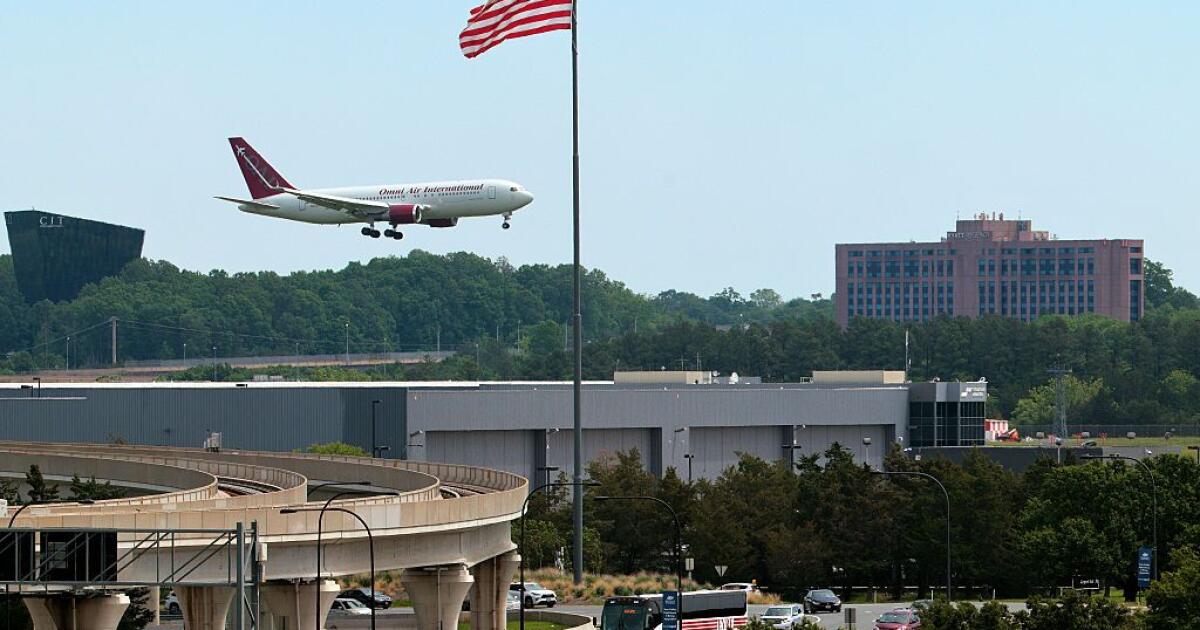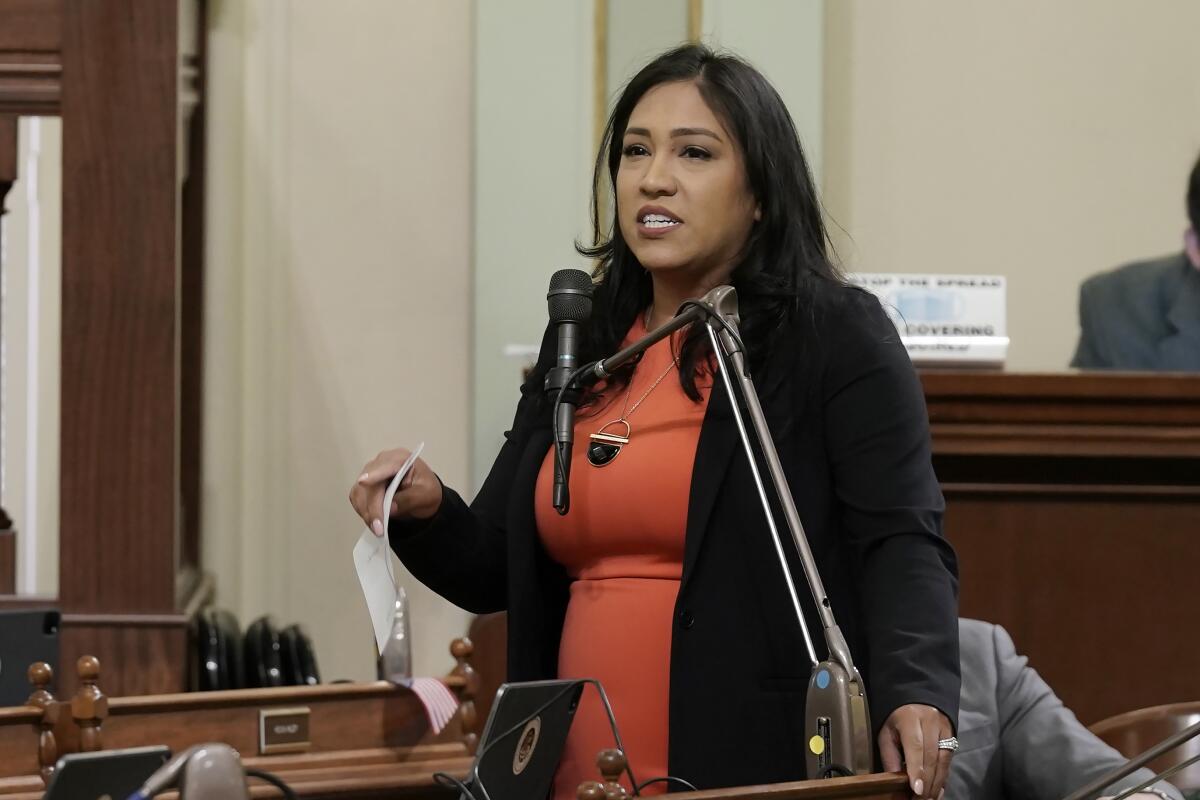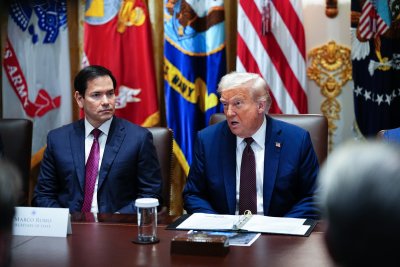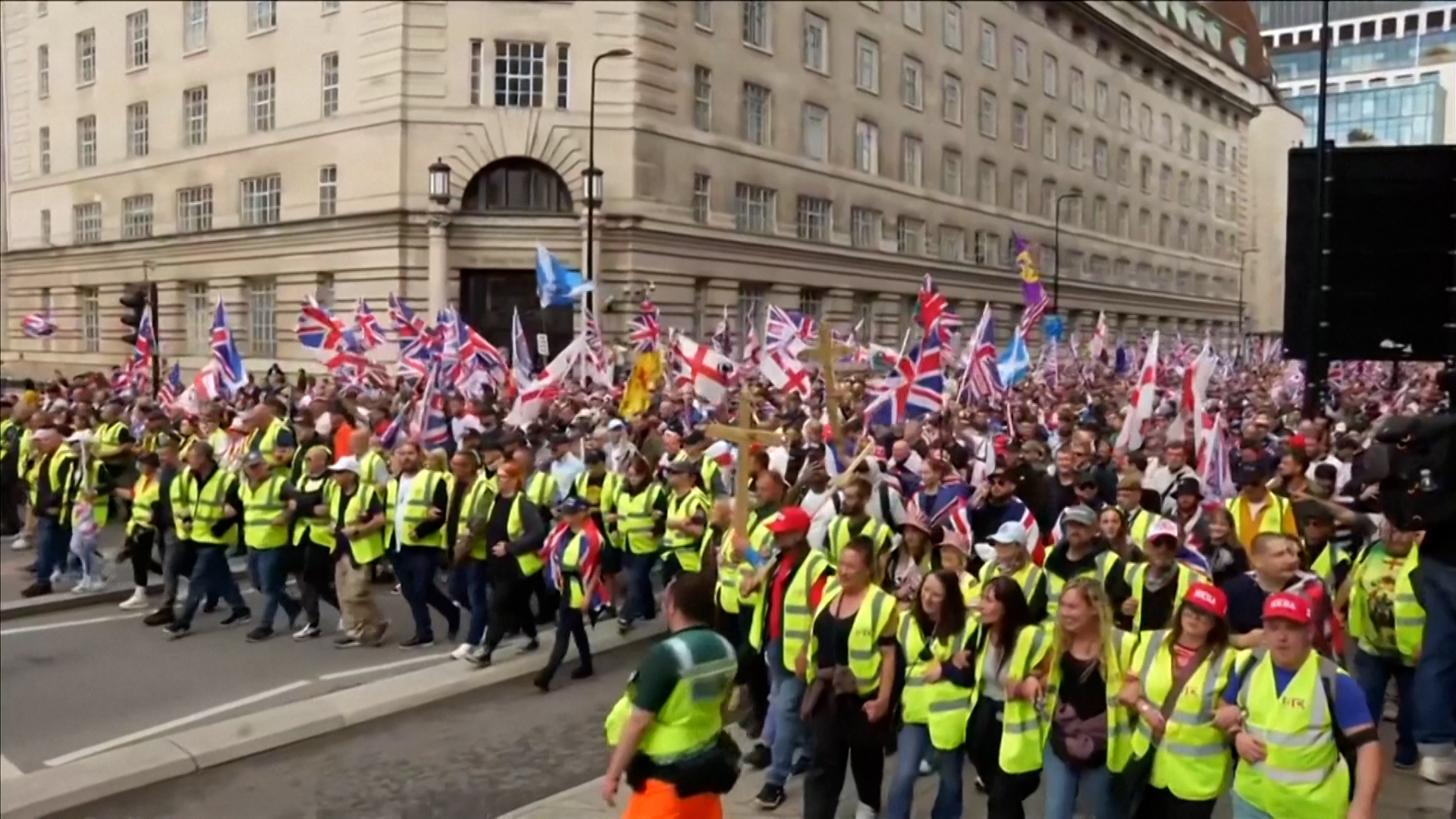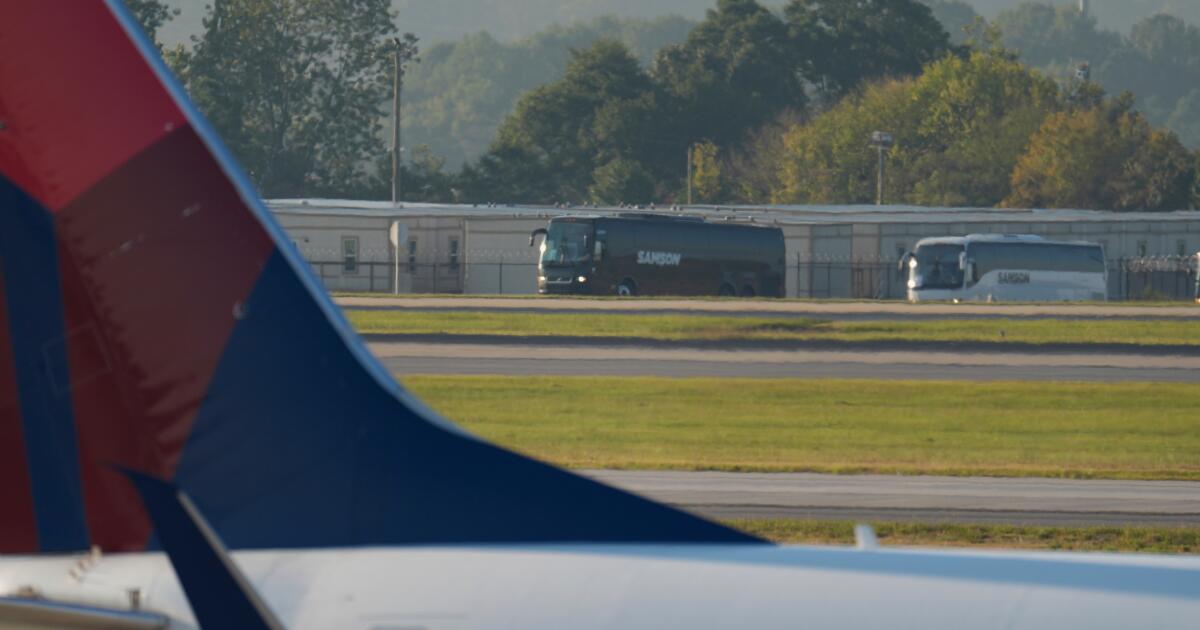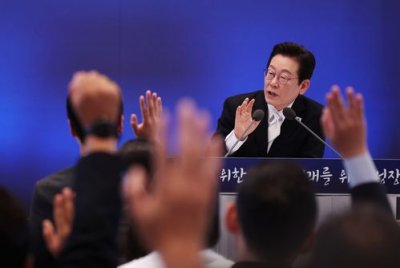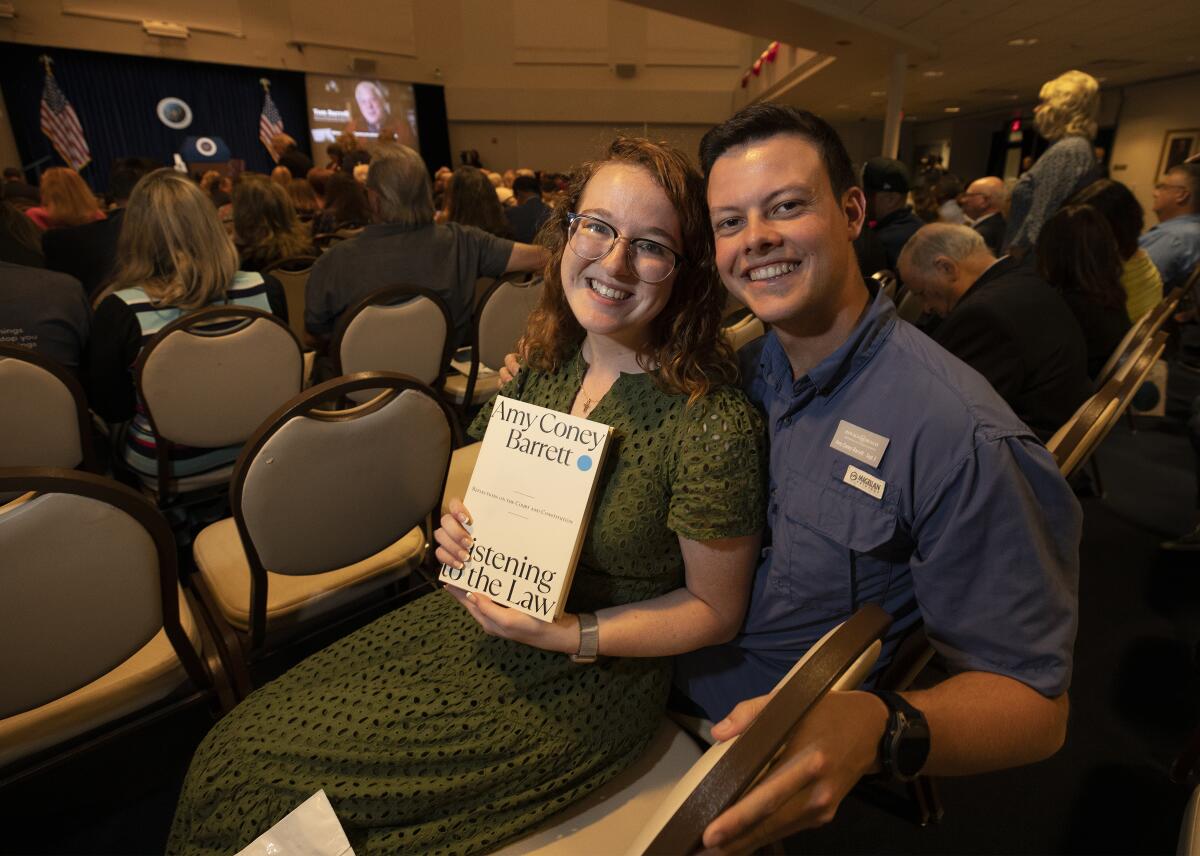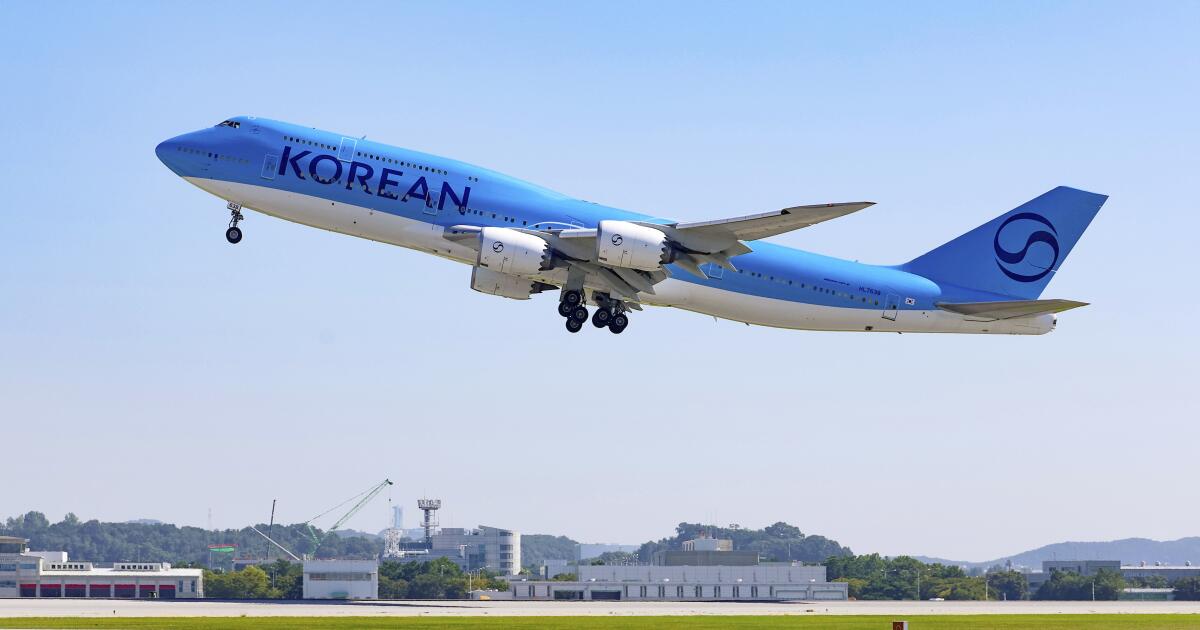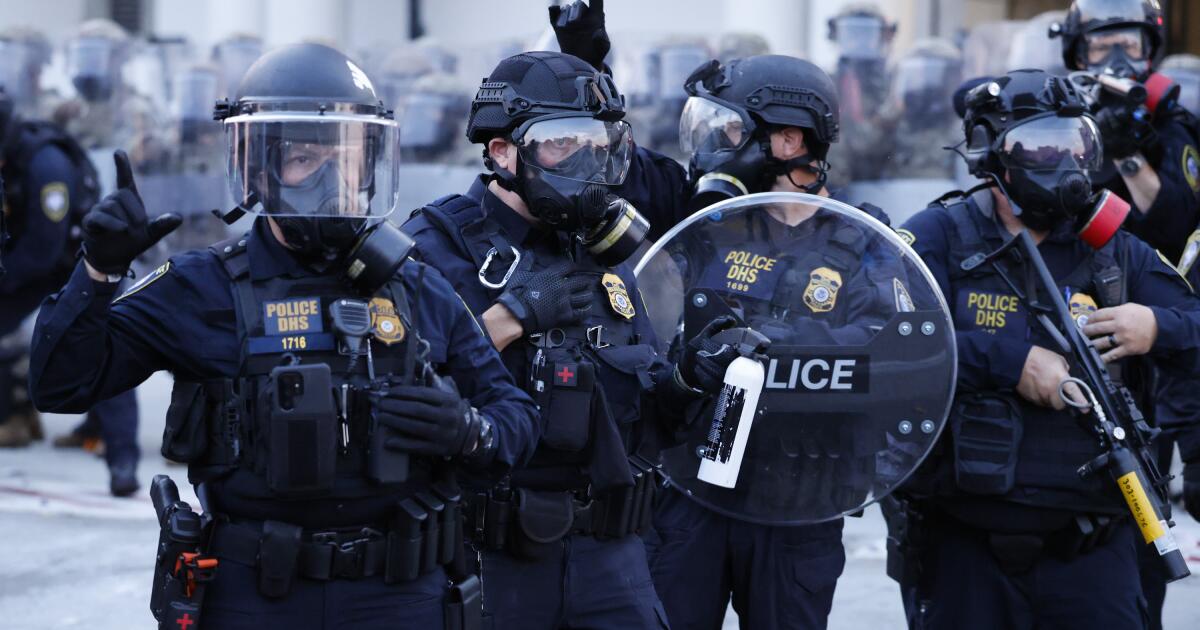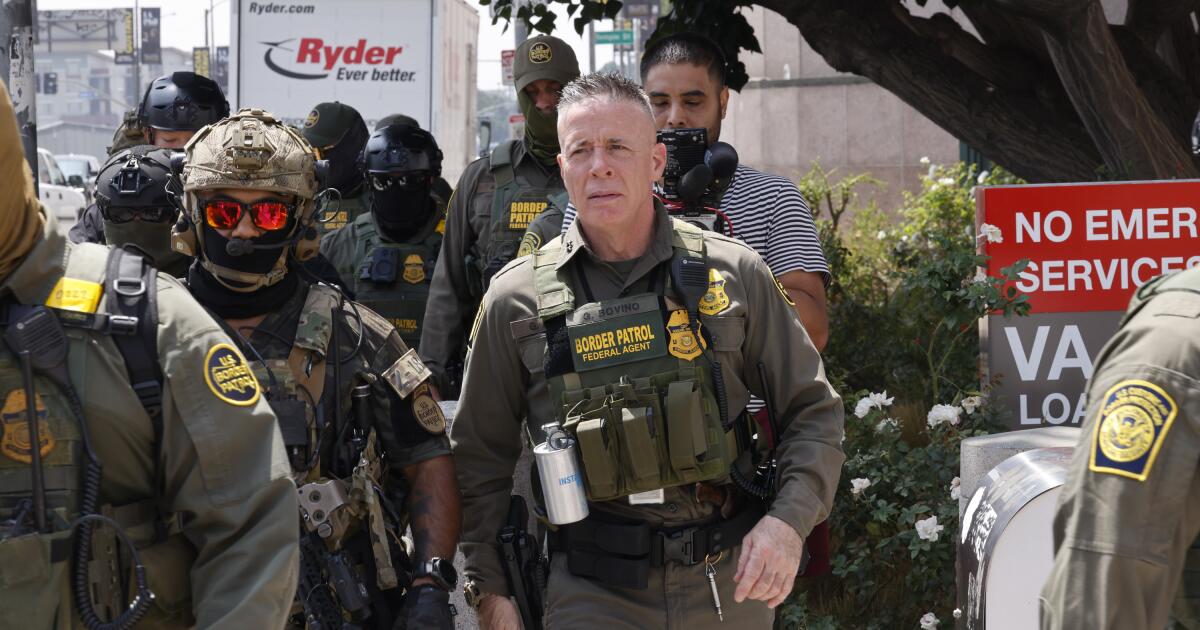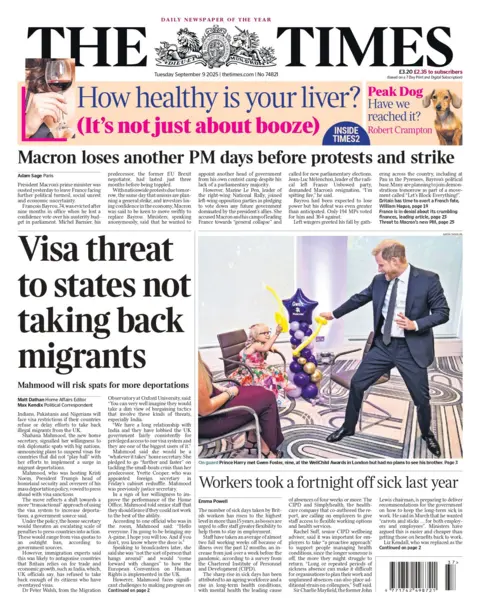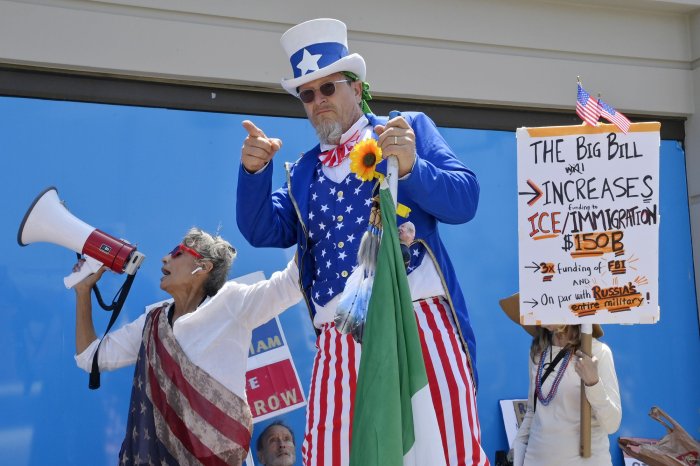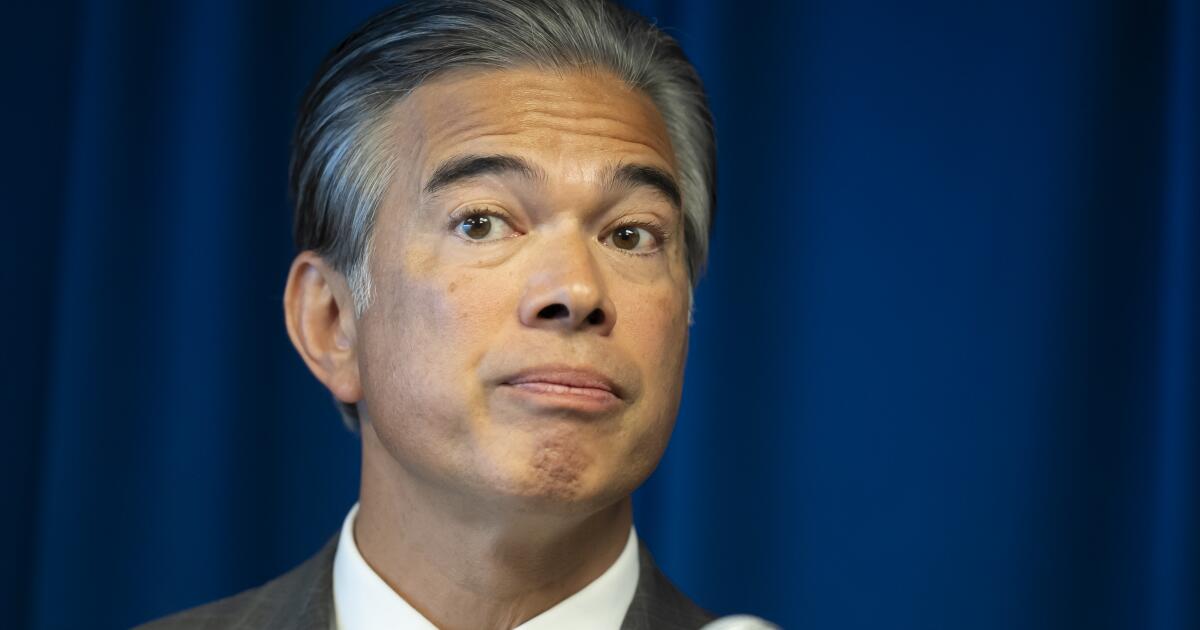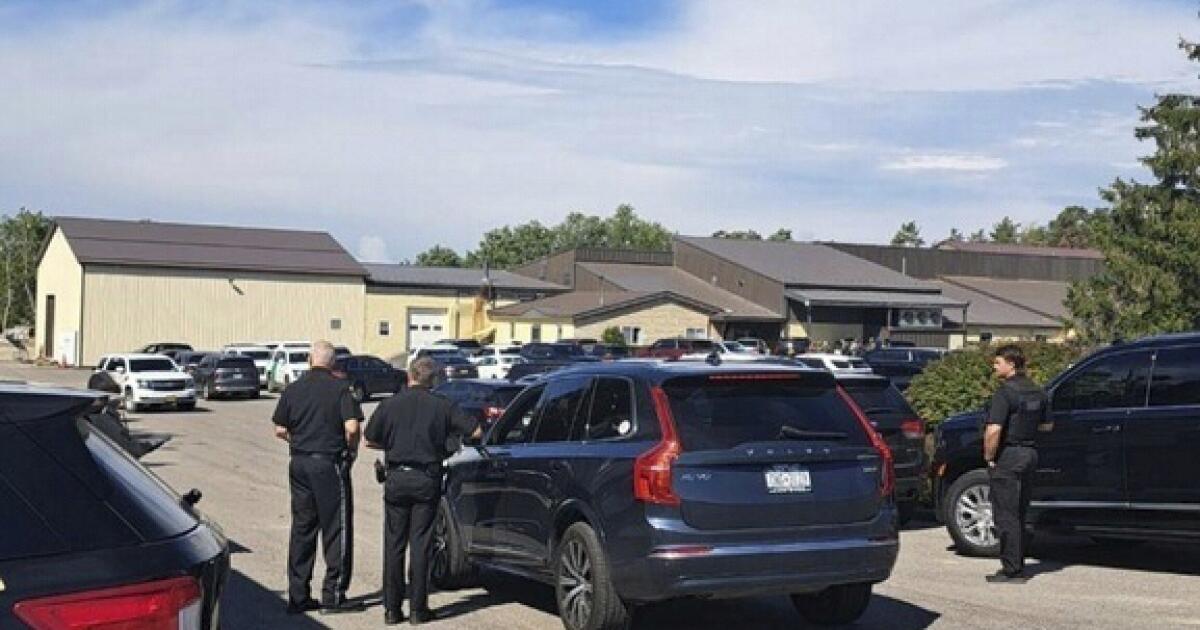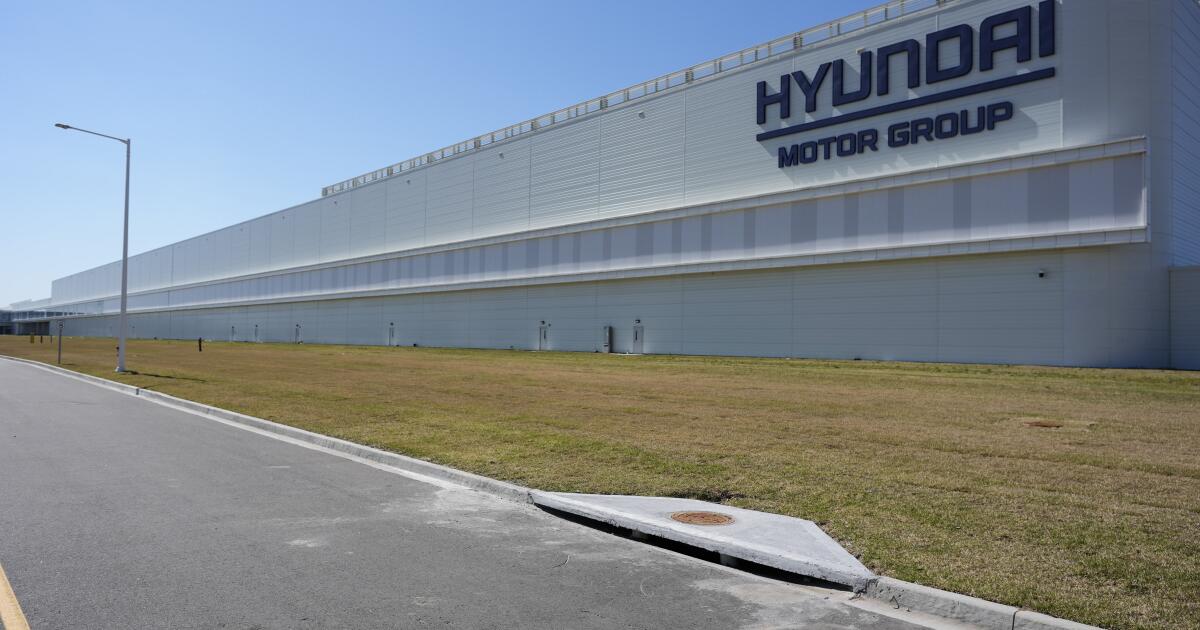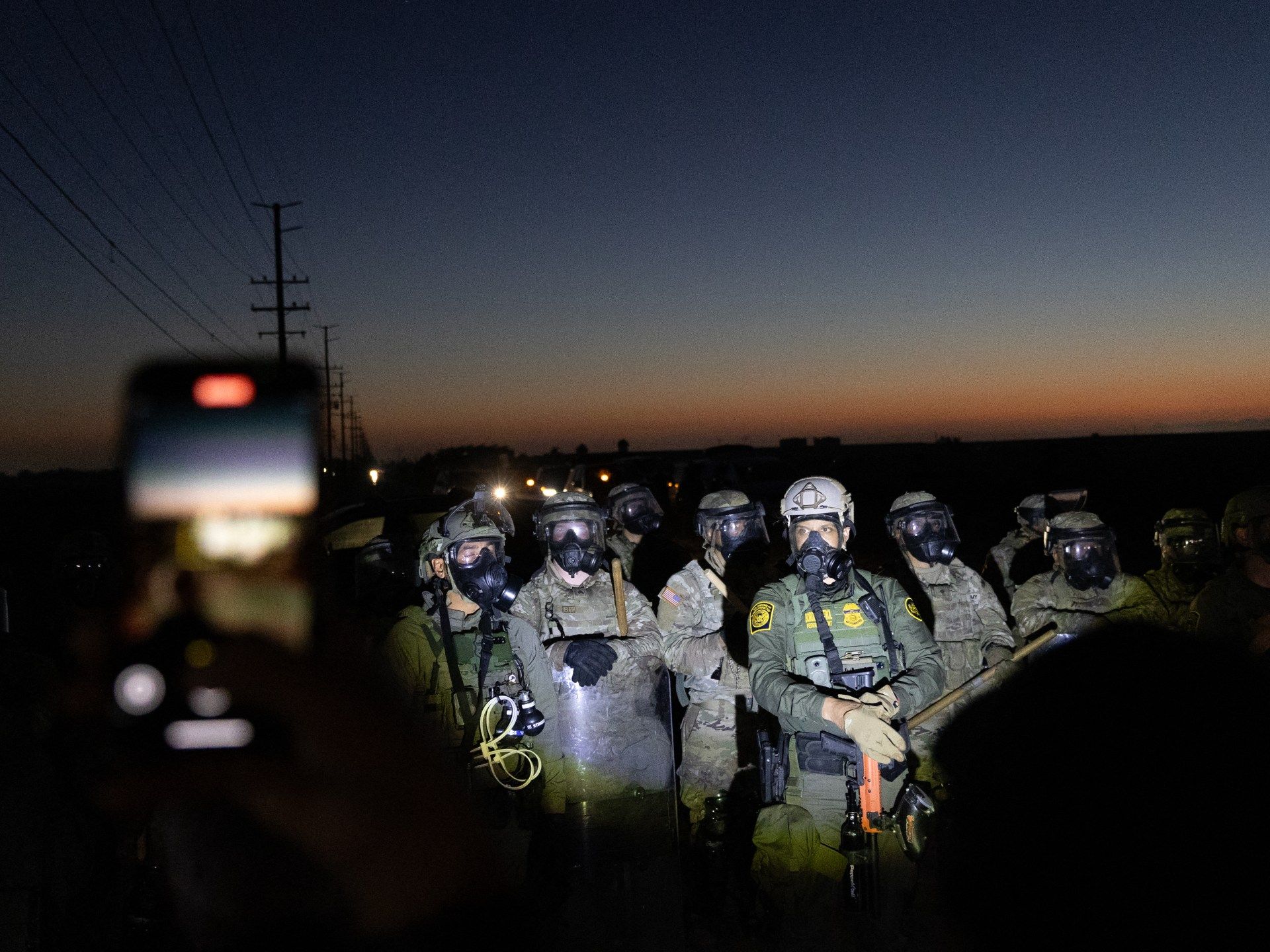Trump shapes an immigration gilded age with $100,000 H-1B fee
President Trump took his most extensive step yet toward overhauling the U.S. legal migration system, with a pair of proclamations that explicitly favor the wealthiest of the world’s prospective expat workers.
Trump on Friday imposed a $100,000 application fee on the widely used H-1B visa program, a move that would drastically increase the cost of visas heavily coveted by some of America’s largest companies — including in the Silicon Valley — seeking to bring in skilled workers from abroad.
The president also unveiled a “Trump Gold Card” visa program — under which, for the price of $1 million, immigrants could get U.S. residency. Businesses could buy residency permits for $2 million per employee, while a new “platinum”-level card set to be issued soon would cost $5 million and allow the holder to come to the U.S. for up to 270 days a year without being subject to U.S. taxes on non-U.S. income.
The restrictions and fees go into effect on Sunday.
It all amounts to a plan for a new gilded age of immigration to America, where those with the resources to invest are welcomed along with their wallets — while at the same time new barriers to entry are erected for those with lesser means and others seen as taking away jobs that could be occupied by U.S. citizens.
The pomp with which Trump announced the programs echoed the theme — over his right shoulder as he spoke to reporters in the Oval Office was an image of a gold card with his face on it along with traditional American images including a bald eagle, all in gold.
It’s a stark shift from America’s stance toward immigration historically, which welcomed those of various economic backgrounds coming to the country legally in search of a better life and more freedom.
‘Significant disadvantage’
Yet even while Trump and Commerce Secretary Howard Lutnick mused about the prospects of a windfall for the U.S. Treasury that could total $100 billion or more, immigration attorneys cautioned that a move of this magnitude would cause major disruptions — several of them potentially very expensive to the U.S. economy.
Cleveland-based lawyer David Leopold warned that Trump’s H-1B changes, including the $100,000 fee, would “effectively kill the program.”
“Who’s going to pay $100,000 for a petition? Unless you want to make this an exclusive program for extremely rich people,” said Leopold, a partner at UB Greensfelder, whose clients include physicians on H-1Bs.
Accenture, Cognizant Technology and other IT consulting stocks hit session lows on Friday on the news of the visa fee.
“This is a senseless, terrible policy for financial services firms that makes American firms less competitive in the global market for talent,” said Alexis DuFresne, founder of recruiting firm Archer Search Partners.
DuFresne warned that while some mega funds won’t be daunted by the prospect of a new six-figure fee to import top talent, “it will have a substantial impact at the margins — with mid-sized firms, smaller firms, and up-and-coming, younger talent at a significant disadvantage.”
“We have had clients who have said in the past, prior to this announcement, that they do not want to have to sponsor a visa. We anticipate that that will become a more prevalent part of our conversations with clients and their goalposts going forward.”
A feature, not a bug
Some of that sentiment, if it comes to pass, may be seen by this administration as an asset rather than a problem.
Senior members of Trump’s administration have repeatedly complained — in blunt terms — that too many immigrants are taking American jobs.
In a fact sheet, the White House said American workers are being replaced with lower-paid foreign labor and called it a national security threat. The dynamic is suppressing wages and disincentivizing Americans from choosing careers in STEM fields (science, technology, engineering and mathematics), the White House said.
Trump’s proclamation does anticipate a scenario whereby it can work around the new costs if they became a major burden, allowing for case-by-case exemptions if deemed to be in the national interest. That provision opens a potential window for certain companies or industries to seek an exception to the new fee.
Nonetheless, the intention to skew the H-1B program toward higher-paying jobs is clear.
Trump also plans to order the Labor secretary to undertake a rule-making process to revise prevailing-wage levels for the program, a move intended to limit the use of visas to undercut wages that would otherwise be paid to workers who are U.S. citizens.
Legal risks
Courts may also scrutinize the expansive new fees.
The H-1B $100,000 application fee in particular is at risk of being struck down as “excessive,” said Becky Fu von Trapp, an immigration lawyer in Stowe, Vt. That’s because federal law allows agencies to charge enough to recoup reasonable costs, and most work visa applications currently cost about $5,000. Even the most complex ones, for certain investment visas, usually run less than $10,000 in total.
The move could also incentivize technology firms and other companies reliant on foreign workers to set up offices outside the U.S. to avoid the application fee and associated hassles.
“Companies will reassess the need of who they really need to bring to U.S. and who can be based in Canada or Singapore, where they still have good technology infrastructure and can work remotely,” she said.
The move may also have a chilling effect on international students seeking admission to U.S. universities, since many of them hope to find jobs through the H-1B process upon graduation, she said.
Congress will also weigh in, Lutnick said, noting that lawmakers must also approve the planned platinum card program. He predicted that could happen later this year.
That’s easier said than done.
Republicans only narrowly control the House and the Senate. Immigration has been a particularly challenging issue to legislate for the GOP in years past, sparking clashes between the pro-business wing of the party that wants more high-skilled immigrants to come in, and another group far more skeptical of immigration as a whole who’ve sought to limit new arrivals no matter where they come from.
What’s more, Democrats are broadly furious about the president’s stepped-up immigration enforcement including aggressive Immigration and Customs Enforcement raids in major U.S. cities including Los Angeles. As such, they have little incentive to cooperate without demanding wholesale reversals of Trump’s existing immigration policies, which he almost surely wouldn’t accept.
Wingrove and Soper write for Bloomberg. Bloomberg reporters Katia Porzecanski and Hema Parmar contributed to this report.
